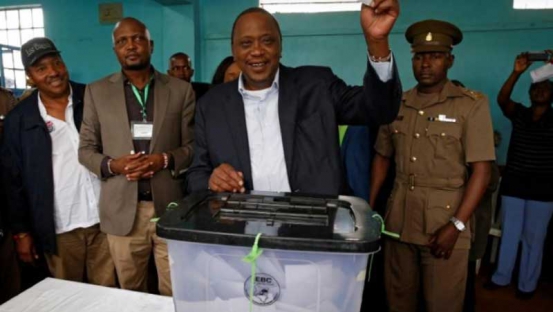×
The Standard e-Paper
Kenya’s Boldest Voice

Results of Kenya’s presidential election re-run started to trickle in on Friday, with early estimates of the turnout at below 35 percent, dealing a blow to President Uhuru Kenyatta’s hopes for a decisive second-term mandate.
With nearly all followers of opposition leader Raila Odinga heeding the veteran’s call for a boycott, Kenyatta’s victory is not in question.